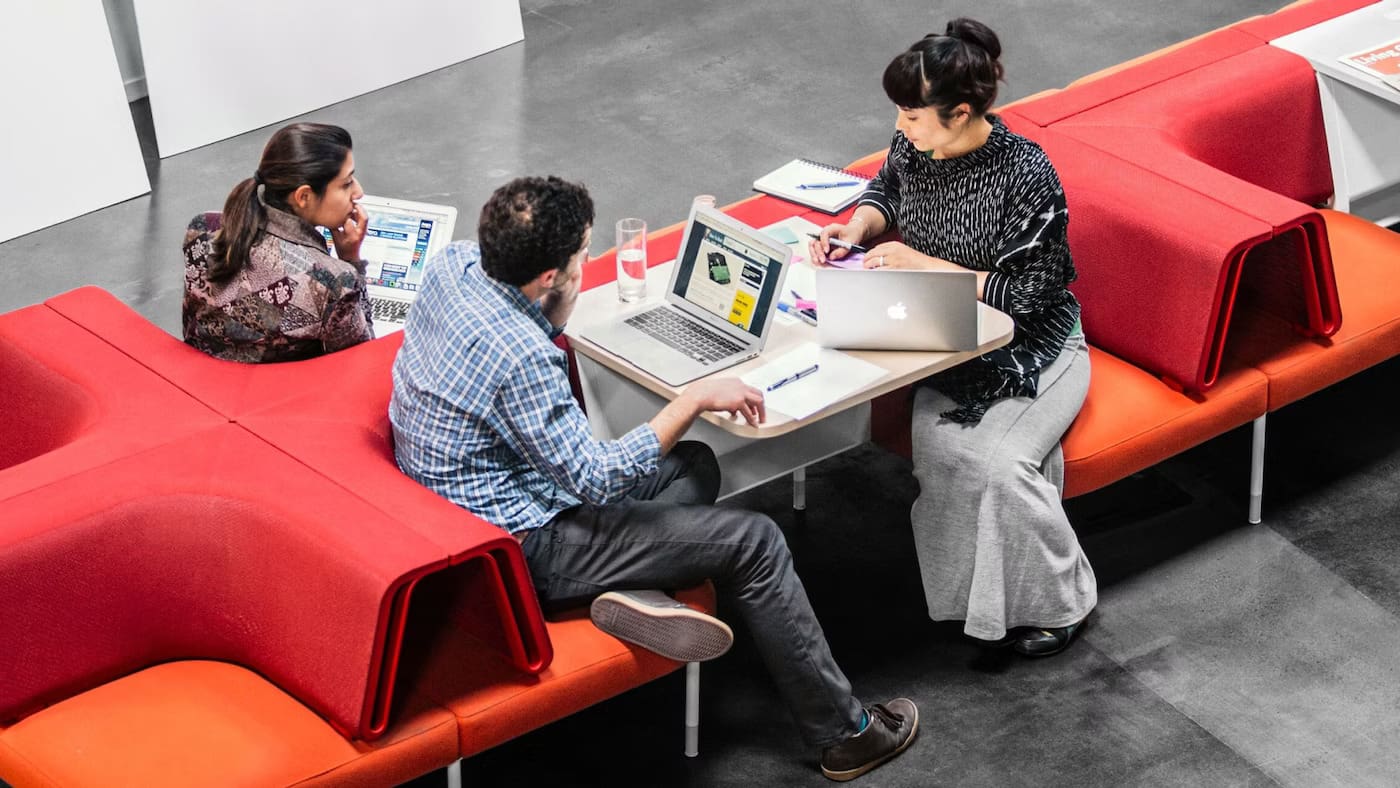Reading time: Less than 3 min

During the disruptions of the past few years, employees stopped thinking about flexibility as a perk. It became an expectation.
Today, people seek flexibility in both where and when they work. Meeting these expectations is complicated. Especially considering that 85% of employees surveyed still want to spend time in a physical workplace.*
Everyone realizes the toll that not enough time being present together has taken on organizations.
– Limiting peer collaboration
– Complicating mentorship and feedback
– Eroding culture
With new expectations placed on time spent together, workplaces need to help people make the most of that time. The answer is not a one-size-fits-all solution. It’s time for a new way forward.

What if we refocused the workplace on what people need for the ways we work today?
– What if it didn’t just bring people together, but it also helped them feel the value of their presence?
– What if its design did more to support employee wellbeing, which has been declining for years?
– What if it made it easy for employees to feel connected again?
– And when needs change—which we know they will—what if it enabled us to plan for and adapt to those changes?
These questions arose from our own research and countless conversations with clients.
As we sought answers, we organized our thinking into a new framework to help organizations uncover the purpose of their place. We call it Design with Impact.
It focuses on three specific ways to make an impact in your organization: wellbeing, connection, and change.
The well-documented drop in employee wellbeing in recent years sparked some important conversations. As a result, more employers today recognize their role in supporting their people’s physical and mental health.
That is a good thing. But acknowledging the need for action is just the first step.
The physical workplace can do more to enhance wellbeing in all its facets. This starts with providing:
– Proper ergonomic furnishings and tools that provide physical support and comfort
– A variety of spaces that provide individuals with choice in how and where their work gets done
– Spaces for rejuvenation and respite
Supporting wellbeing is the right thing to do. It’s also intertwined with business success. A business can only thrive when its employees are thriving.

In the past, organizations viewed the workplace as a place of production. It was where people went to get work done.
But the last few years proved that employees could stay productive while working from home. As a result, workplaces faced an identity crisis.
Now a clear, new role is emerging.
When asked why they might come to the office, 74% of people surveyed cited camaraderie, community, or connection as their top reason.*
Today’s workplace needs to be ready to host rich, interpersonal connections between colleagues—both in-person and remote.
These include:
Strong ties: Those immediate team members we know well and interact with frequently. Strong ties facilitate knowledge-sharing and problem-solving.
Weak ties: Those extended relationships with people from different teams or departments with whom we interact less often. Weak ties provide access to new ideas or opportunities, often fueling innovation.
Both sets of ties need strengthening today.
Despite being a natural and necessary part of life, change can feel uncomfortable.
You can’t resist change, but you can learn to navigate it. Better yet, you can empower your people to embrace it.
We help organizations embrace change by giving people control over their environment, allowing them to tweak it to meet their needs by the minute, the hour, or the day.
Change by the minute
Individuals or teams can adapt personal workpoints or team spaces in the moment.
Change by the hour
Spaces can be rearranged for specific needs within a few hours.
Change by the day
Organizations can plan and execute larger-scale reconfigurations with minimal disruptions.
Planning for change at all three levels helps build resiliency and optimize your workplace investment. This quells concerns and, more importantly, communicates to employees that their organization is ready to support their ever-changing work.
* Source: February 2023 Future Forum Pulse

WE CARE ABOUT YOUR SPACE
VISIT US
328 Selleck St
Stamford, CT 06902